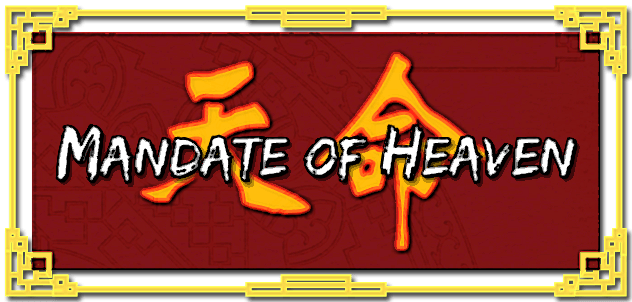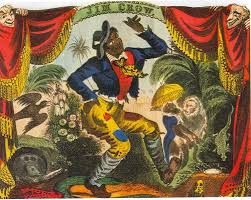According to historians, the Shang Dynasty in China lasted from 1766 to 1122 B.C.E., and it had a big impact on setting the fundamental characteristics of early Chinese society, which we know today thanks to the written records and material remains that they left after their dynasty came to an end.1 Immediately following the Shang Dynasty was the rule of the Zhou. Much of those records and remains have given us insight into the cultural features of Chinese society during the Shang Dynasty; however, methods of law, justice, and administration under the Shang rulers is not well known. The Zhou Dynasty has provided us better and clearer information regarding the way that Zhou rulers ran their society.2 One excellent example of Zhou Dynasty ruling practice is their ideological pronouncement known as the Mandate of Heaven.
The Mandate of Heaven was a set of principles that the Zhou dynasty outlined that would have a relevant influence on the way the Chinese thought about government and politics until the twentieth century.3 The Zhou rulers put forward the Mandate of Heaven idea as a way to display their theory of politics. This theory is interesting, and quite different from that of most ancient world dynastic rulers. The Zhou rulers used the Mandate of Heaven as their justification for their rule, and it served as proof of their theory that Heaven (Tian) had withdrawn the mandate to rule from the Shang dynasty and had bestowed it instead on the Zhou dynasty because of the misrule of the Shang rulers.4 Historians have found evidence that the Zhou dynasty’s overthrow of the Shang rulers was largely justified by the claim that they had received a mandate from Heaven to do so.5 Because the Zhou dynasty rested its justification for overthrowing the Shang rulers on this supposed mandate, that Mandate subsequently came to be seen as the primary justification for all new dynasties throughout China’s long history.

The major message of the Mandate of Heaven was one that explained the politics of the time; the concept behind the Mandate of Heaven was that political leaders were given their power by a divine Heaven, a divine consent without which a man could not be considered a legitimate ruler.6 This message is obviously very powerful, and upon closer examination of the mandate and its relationship to the Zhou dynasty, it becomes quite evident that the Zhou rulers used the mandate as a novel means to justify their overthrow of the previous rulers of China. The message outlined in the Mandate also served another purpose, as observed by historians: the mandate issued a message to the Chinese people about the importance of being a good ruler.7 Many believe that the mandate existed with the sole purpose of reminding the people in ancient China that the Zhou had been chosen by Heaven to be rulers because they were worthy of acting in the right way.8 In other words, the Zhou practiced what they preached; they told their people that Heaven believed them to be the most fit to rule China, and they proved that to be accurate by acting as good rulers, at least for a time.
The Mandate of Heaven can easily be seen as the most important political statement made by the Zhou dynasty because of its ability to justify their coming to power and the fact that the early Zhou leaders followed through on the claim. Moreover, the Mandate of Heaven provided a certain view of Chinese history, that is, the view that Chinese history is cyclical. Once the Mandate of Heaven was first issued, it became a norm for each new dynasty to claim they had received the mandate, begin their rule by acting in the right way, but ultimately become complacent and fail as a dynasty. Overall, the mandate was an important idea to the people of ancient China who lived under the rule of the Zhou, or under the rule of all the subsequent dynasties that claimed to have been bestowed with the same Mandate of Heaven.
- Jerry H. Bentley, Herbert F. Ziegler, and Heather E. Streets-Salter, Traditons & Encounters: A Brief Global History From the Beginning to 1500, Fourth, vol. 1 (New York: McGraw-Hill Education, 2016), 55. ↵
- Bentley, Ziegler, and Streets-Salter, Traditons & Encounters, 55. ↵
- Bentley, Ziegler, and Streets-Salter, Traditons & Encounters, 55. ↵
- Dingxin Zhao, “The Mandate of Heaven and Performance Legitimation in Historical and Contemporary China,” American Behavioral Scientist 53, no. 3 (November 1, 2009): 419. ↵
- Dingxin Zhao, “The Mandate of Heaven and Performance Legitimation in Historical and Contemporary China,” American Behavioral Scientist, 419. ↵
- Bentley, Ziegler, and Streets-Salter, Traditons & Encounters, 55. ↵
- Dingxin Zhao, “The Mandate of Heaven and Performance Legitimation in Historical and Contemporary China,”American Behavioral Scientist, 419-20. ↵
- Dingxin Zhao, “The Mandate of Heaven and Performance Legitimation in Historical and Contemporary China,”American Behavioral Scientist, 419-20. ↵



53 comments
Joshua Zemanski
This was a very “get to the point article” in a good way. You said what you needed to say and all the information that was needed to follow how it stared very well. I thought it was a great quick read that had a good story with it. I think you did a fabulous job did what you wanted to do with this article.
Robert Miller
The article was well-written and chronologically accurate. I had heard of the Mandate of Heaven but I didn’t know it pertained to Chinese rule. The author described it very well and I have a much better understanding of what it was all about, including more insight into what the people in ancient China thought about their government. The illustration describing the Mandate of Heaven was also a huge aid to understand the reading.
Steven Valdez
Overall, this article was pretty concise on what the Mandate of Heaven was. It was pretty fascinating to see how the Zhou dynasty wanted only good rulers for their country. The author made sure everthing about this topic was in the article and was just straight to the point. It does make me wonder if this concept is still somewhat practiced in other cultures in today’s society. Good job!
Gabriella Parra
I was unaware that the Mandate of Heaven was supposedly revoked when a dynasty became corrupt! That is such an important factor because it holds the replacement dynasty to a high standard, at least for a time. I love your use of images in this article. It really helped to demonstrate the cyclical nature of the Mandate of Heaven. Great job!
Emily Rodriguez
Wow! This article was packed full of information for how short it was. I believe the author did a good job with the introduction being about the previous dynasty (Shang) and going into the current one that was being written about (Zhou). I also feel that the illustration in the article gave the reader a better understanding of the Mandate from heaven. Great job! This article went straight to the point and covered a lot of information.
Matthew Gallardo
Hey Victoria! I really like the simplicity of explaining the mandate of heaven. The article doesn’t go too far into tracking the history of the mandate of heaven, staying on topic with its use by the Zhou to justify their claims. It’s also an easy article to read, giving people easy access to learning about what the mandate of heaven is.
Abigail Delarosa
I really enjoyed reading this article. I was very intersted and never got bored once. Your use of sources were great and realy backed up everything you said. I loved how detailed your article was as well. You had a very strong writing and never got off topic once great writing style and I will be on the look out for anything else you write.
Victorianna Mejia
This article is excellent! It’s straight to the point and very informative. The way the Zhou Dynasty used The Mandate to Heaven to influence others and overthrow the rulers is a great concept! Significantly since they believed if they were to rule in a certain way and it led to natural disasters, it could be because they were not ruling correctly. It makes me wonder if this concept was still in place in different parts of the world, who would be in charge in the present day?
Joshua Marroquin
This article was very informative and interesting to read, since he helps you actually visualize how it was like back in the 1700 BCE. I learned a lot while reading the passage and do recommend to others to read it as well, since you can learn a lot from it. I am indeed surprised how the images the author provided help me better understand what the mandate of heaven was and how it work. I appreciate the author for making this historical even more interesting than it already was.
Samuel Vega
Victoria, I enjoyed your article because of my interest in the Chinese dynasties. Your description of the Mandate of Heaven was informative and concise. It is hard to believe how the various dynasties conformed to this mandate for centuries. The image on the cyclical nature of the Mandate of Heaven was effective to summarize the discussion and to show how old dynasties were replaced since they fell out of favor with the Heavens.